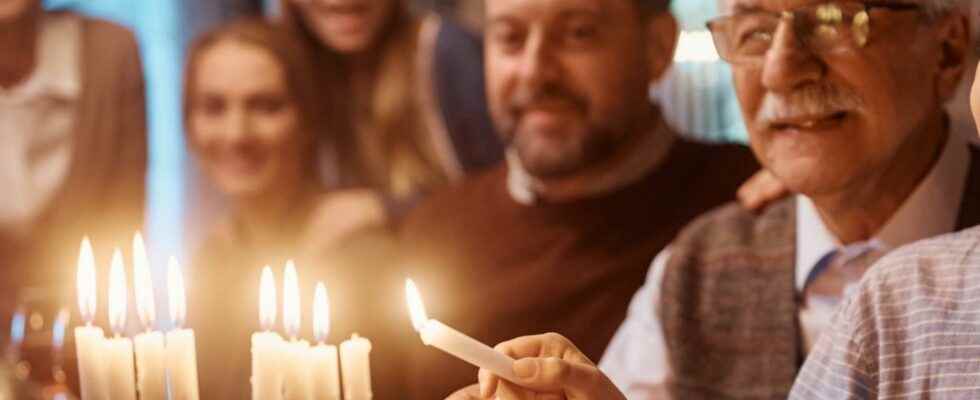Hanukkah begins on December 18th
Meaning and customs of the Jewish Festival of Lights
The Jewish Festival of Lights, Hanukkah, will take place from December 18th to 26th this year.
© Drazen Zigic/Shutterstock.com
Hanukkah begins on December 18 this year. Why is the Jewish Festival of Lights celebrated and what are the customs? An overview.
Hanukkah, the Jewish Festival of Lights, begins this Sunday. It is one of the most important holidays in Judaism and begins every year on the 25th of Kislev (the third month of the Jewish calendar) – in 2022 the eight-day festival runs from December 18th to 26th. Customs, food, meaning: This is what you need to know about Hanukkah.
Why is Hanukkah celebrated?
The Hebrew word “Hanukkah” means “inauguration”. The festival has historical origins and commemorates the rededication of the Second Jewish Temple in Jerusalem in the Jewish year 3597 (164 BC on the Gregorian calendar).
When the Jews cleaned up the retaken temple, they found only a keg of oil to light the lamp in the temple. In the end, the light burned for eight days instead of just one night – a miracle. That is why Hanukkah is celebrated for eight days.
To commemorate the oil miracle, a candle is lit each day during the Festival of Lights from the traditional eight-armed candelabrum, the Hanukkah. The lighting is done with the help of the ninth candle, also called servant or “shamash” in Hebrew. The candles are always lit after sunset and from right to left – the new one always first – until all eight lights are lit on the last day. The chandelier must be set up in such a way that it catches the public eye, after all it is supposed to make the “miracle” public. It is often found in windows.
Games, food, customs
Besides the lights, family is the focus of Hanukkah. It’s mainly a domestic celebration, gathering at home with friends and family. According to tradition, people do not work in the house from nightfall until midnight, but sing and play.
The Dreidel game with a four-sided wooden spinning top with four Hebrew characters that stand for the saying “A great miracle happened here” is popular. Depending on which side you got, you can win small prizes. The children also receive sweets, money or other gifts every evening.
Traditionally, Hanukkah dishes are prepared with olive oil in memory of the oil miracle, such as sufganiyot (fritters) or latkes (potato pancakes).
